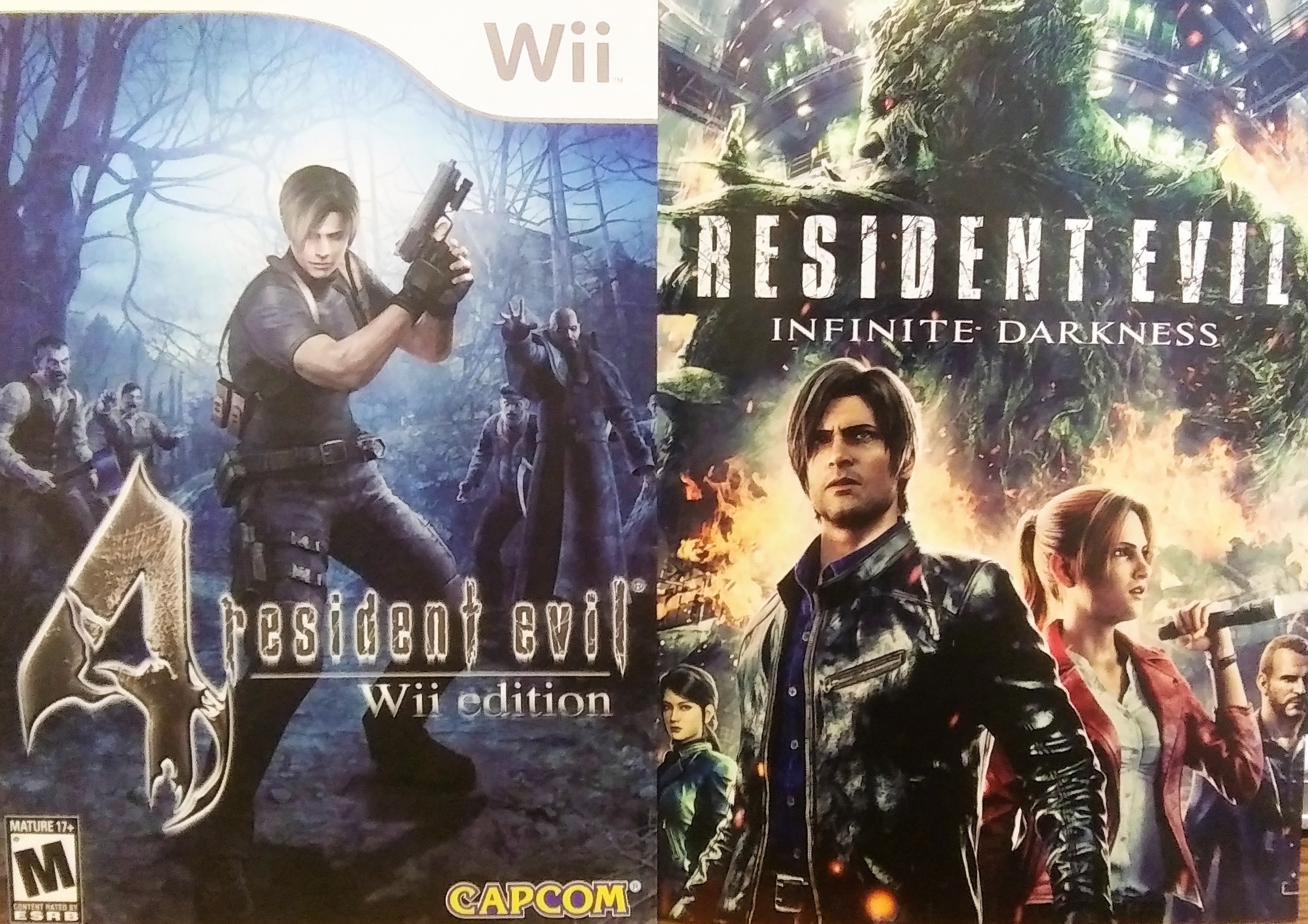How does the Netflix series stack up to the videogame?
Though several months late (though not as late as every zombie), this movie — I mean, first season of a Netflix series just arrived in physical format — eh, I guess being new enough. This is more of an official successor to an established property than an adaption thereof, despite being 16 years in the making.
The game
The 2005 Capcom game “Resident Evil 4” was my introduction to the series of “Resident Evil”, and it was breathtaking even in the limited format of the Wii console. I initially scoffed at the game and the character of Leon, mainly because of the punk-rock, boy-band haircut he has. However, I was soon drawn into the game by playing his sardonically humored and immensely moral character in rescuing the daughter of the United States President from a cult of infected monsters.
The game’s charm comes from the grounded settings, impossibly ridiculous excess of monsters, little to no profanity, no sex or nudity but rather enjoyable human characters blowing the brains out of monsters with guns. Good, clean fun, you know? The gameplay emphasizes moving about the vast, intriguing world and collecting items to place into the inventory ranging from bullets, money, healing and powering plants.
Not everything is enjoyable. There are missions that drag on far too long and characters with unexplained vendettas, partnerships with the hero which would be great if you are familiar with them, but leave you completely lost if you start with this entry. There is also an overtly annoying villain who I can only assume is a caricature of Napoleon Bonaparte; it was funny in “Chitty-Chitty Bang-Bang”, but joyless here.
I have fond memories of playing the fourth game in a dark room, jumping when a monster would attack out of the night. Then I would see a tall silhouette in front of me and shoot him instinctively only to realize I had accidentally killed my weaponry dealer.
Review: 4.5/5
The series
The series consists of four episodes taking place right after “RE 4” with many references of Leon’s mission thereto. It begins with the White House being infiltrated by zombies (no comment) and Leon arriving fashionably late to save the day. He is then paired with two agents going rogue to expose a government conspiracy which left them infected with mutating viruses.
After they massacre a submarine crew without cleaning their weapons afterward (quite unsanitary), Leon discovers their treachery, and resolves to stop them. The first agent, Jason (whose nihilism rivals that of the ‘Walking Dead’ creative team) is a tragic figure whose “ends-justifying-the-means” mentality conflicts with Leon’s morality. The second is Shu Qi, his one-note groupie. “You saved (my brother’s) life,” she later says to a mutated Jason (despite him murdering her family 10 minutes ago), surprising only herself when he snaps her neck like a carrot stick.
Despite the making-of featurette where filmmakers explained Jason’s mutated Tyrant form’s physical representation of his emotional pain, I could only see “Swamp Thing”, is it because I watch way too much TV? (Don’t answer that.) And also, why is it when men turn to monsters in films their facial hair vanishes?
After playing Leon for hours, fighting hordes of infected villagers with bladed tentacle-heads, a Loch-Ness monster, a Lord of the Rings-level troll and many other beasts, this series where Leon runs from zombified rats feels a bit subdued. What I preferred the most was the final showdown. Lacking much videogame combat (but not the physics) it was satisfying to see Jason physically best Leon only to spare him, knowing they are the same in their means but not in their methods.
Review: 4/5
My favorite part of the series was the inclusion of a character named Patrick who is initially hostile at Leon’s mention (probably becuase of the punk-rock, boy-band haircut), but befriends and supports Leon after being rescued by him. It’s nice to be represented by more than just a starfish.
